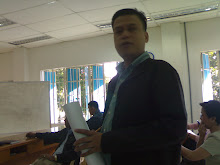The soaring oil prices, population growth, cultivation of biofuels, loss of agricultural land to industrial development and climate change contributed to the global food crisis.
Climate change has no respect for territorial boundaries or for a country’s wealth or economic standing. Failure to address climate change will result in an intense conflict over resources in the near future.
On the other hand, increasing poverty and inequality breed conflict, social unrest, insurgency and sow the seeds of terrorism. Moreover, the food crisis, competition over resources, climate change and increasing poverty will certainly fuel massive unrest especially in less democratic parts of the world.
To find a lasting solution we need to get our act together and think beyond our borders and national identities. We must remember that the issues and concerns that we face in the economic, social and political fronts are best understood and addressed in a democratic setting.
In Asia, voices calling for change and for more democratic space are being violently stifled. In Myanmar, Cambodia, and Tibet, the struggle for genuine democracy spans decades.
Months ago, we were horrified when we saw on television how ordinary folks and monks were beaten like animals by the police on the streets of Rangoon. There was neither shame nor remorse on the part of the government of Myanmar even if these acts were widely condemned.
The cyclone that recently struck Myanmar and claimed thousands of lives left a dent in our hearts. But even as we shared their grief, we were also disgusted when we heard terrible stories of how victims were denied much needed aid from foreign governments by the ruling junta.
Even in prosperous Asian countries, under the guise of protecting state security, the political opposition and the innocent citizens are being persecuted, harassed, jailed without charges and denied the right to avail of the services of a lawyer or the right to fair trial.
Dismantle barriers in agriculture
Democracy anywhere in the world remains fragile if somewhere in the world it is being disregarded, trampled, even abhorred.
Unless there is economic stability, peace and security in this century will remain elusive. International terrorism thrives where poverty, inequality, lack of political choices and social opportunities abound. It is no secret that extreme poverty has warm relations with terrorism.
We must collectively call for a meaningful change in the global trade arena. We can avert a global economic disaster if wealthy countries will be as aggressive and passionate in dismantling barriers in agriculture as they are in dismantling barriers in industrial goods and services where they have a comparative advantage.
Rich nations can do much by opening up their markets and scrapping subsidies so that poor nations will have a fair chance to succeed in the trade arena and consequently be less dependent on aid.
It is outrageous that the daily allowance on subsidy for every cow in the European Union is around 3 dollars which is more than what 2 billion poor people earn in a day hence they are experiencing food insecurity.
Expansion and effective distribution of global wealth is only possible if trade-distorting farm subsidies and tariffs are removed.
Improve governance
The gigantic challenge we are facing right now is to address these global problems by improving governance. It is no secret that resources for economic and social development have been diverted to the personal pockets of the powerful elite especially in fragile states.
Corruption has corrosive effects on societies and nations. It impedes development. But the fight against corruption is only effective in a democratic setting because accountability is required of public officials and institutions. In a genuine democracy, we have a strong and independent judiciary and a resolute and vigilant media. It is only in a genuine democracy where people’s rights and welfare are given huge consideration.
In the economic arena, we are in a unique position because we can impress on our governments and people the importance of human lives over trade policies that only benefit a few spoiled farmers in Europe. Much has been said against the European Union’s Common Agricultural Policy. However, change for the benefit of humanity will take effect if trade reforms will be seriously and sincerely undertaken by the European Union.
The threats to global security are also threats to democracy. It is regrettable that the measures adopted by states to counter terrorism also infringe on human rights and civil liberties. Fighting terrorism at the expense of human rights is a formula that will surely fail.
We must constantly and consistently guard against the erosion of democracy and disrespect of democratic institutions even in places beyond our borders.
